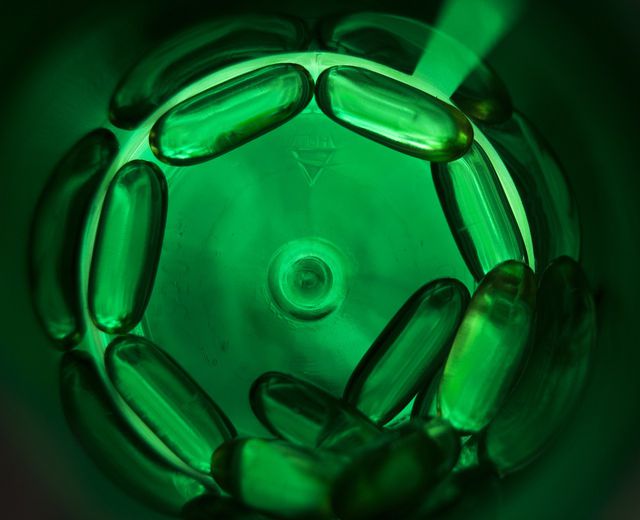
AFA algae are blue-green freshwater algae which, as a powder and tablet, are said to help you lose weight and combat numerous diseases – from ADHD and Alzheimer’s to depression and cancer. But experts warn of AFA algae.
Do you believe the reports on the Internet AFA algae, the salvation of mankind is imminent: AFA algae should help against aging, allergies, depression, Alzheimer’s and hyperactivity as well as hair loss, skin problems and even cancer. Obese children get excited about sports, flu quickly passes and the many sensational nutrients are enough to sustainably feed the entire world population. There is only one catch: These statements are not scientifically proven – experts even doubt that AFA algae have any positive effect at all.
AFA algae: supposed miracle cure with potential dangers

(Photo: CC0 / Pixabay / nonbye)
AFA algae (Aphanizomenon-Flos-Aquae-Algae) have been popular as dietary supplements in North America for several years and are now also available in Germany through various online shops. The AFA algae are cyanobacteria that Association for independent health advice According to (UGB) consist primarily of protein:
- about 70 percent protein
- approx. 12-20 percent carbohydrates
- approx. 26 percent fat
- the rest are vitamins, phytochemicals and Minerals
According to the UGB, you should not eat more than 1.5 grams of AFA algae per day, so you take the minerals, vitamins and phytochemicals it contains only in the smallest quantities on. The UGB calculates: “A slice of cheese contains about twenty times as much Calcium like a daily dose of algae. And a slice of whole grain bread delivers almost a hundred times zinc“.
AFA algae are particularly praised for their content Vitamin B12. The algae are indispensable for vegans who lack the vitamin B12 from animal products. But the Consumer advice center indicates that it is “largely a vitamin B12 form (pseudovitamin) that cannot be used by humans“Acts.
AFA algae are not a cure



(Photo: CC0 / Pixabay / F_A)
The German Federal Institute for Consumer Health Protection warns against the use of AFA algae in Attention Deficit Hyperactivity Disorder (ADHD): “There is no scientific evidence of therapeutic effectiveness”.
Food supplements are also not used to cure diseases or alleviate symptoms. There are medicinal products for this which are checked for approval and have to provide proof of effectiveness. In Germany, however, there is not a single drug that contains AFA algae or cyanobacteria. There is also none in the approval process, according to the consumer advice center. One of the reasons: there is not a single scientific study that certifies a health benefit.
Sellers are only allowed to advertise health-related statements in a few cases. When exactly, the EU decides for individual food supplements and foods and also specifies exactly which concrete statements are permitted. This is to prevent manufacturers and sellers from misleading consumers with questionable health promises. For AFA algae, according to the consumer advice center no health-related statements allowed. If manufacturers nevertheless make health promises, it is a “Violation of the ban on misleading advertising“, Writes the Federal Institute for Risk Assessment (BfR).
Poison in AFA algae: dangerous microcystins discovered
AFA algae are not only lacking a proven, positive benefit – they often also contain toxins. “Some strains of cyanobacteria produce toxic microcystines, too Nausea, vomiting, Diarrhea, apathy, and high intake can lead to nerve and liver damage, ”says the UGB. The World Health Organization classifies the toxins as potentially carcinogenic, reports Stiftung Warentest. German manufacturers state that their algae are filtered. But there is no evidence that filtering can completely remove microcystine.
In these cases, AFA algae are particularly critical:
- Limit values are exceeded in some cases and the consumer advice center warns children, pregnant women and nursing mothers in particular of the consumption of AFA algae.
- Anyone suffering from an autoimmune disease should also not consume AFA algae.
- If you take medication, it can interact undesirably with the ingredients of the AFA algae. Under no circumstances should you discontinue therapy in favor of the healing promise of AFA algae.
If a manufacturer wanted to approve its AFA algae as a medicinal product, it would have to be scientifically proven in addition to its effectiveness. In the US, it has been prohibited for many years to advertise and sell blue-green algae products with therapeutic claims, according to the BfR.
Read more at Utopia:
- Herbal supplements do not have to prove health claims
- Dietary supplements for vegans: stay away from it
- Chlorella, the miracle algae with a high detox effect?